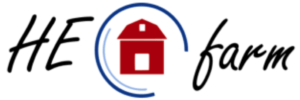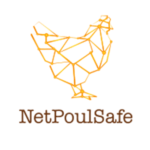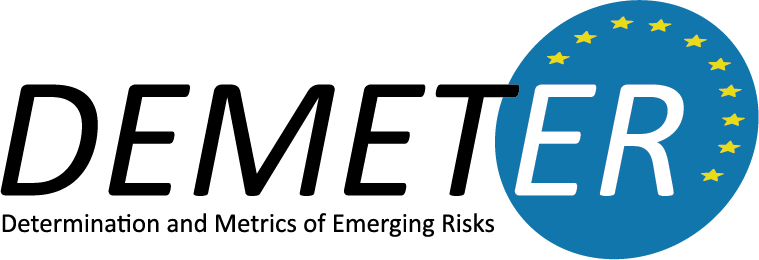Research
The focus of the research, development and innovation activities is to participate in national and international projects aiming at the safety of the food chain, and thus, due to the profile of the department, it mainly targets the following research areas related to food chain safety:
- Data analytics research (data mining, text mining, network mining, artificial intelligence applications)
- Forecasting (identifying emerging risks, epidemiological modelling)
- Decision-making methodological research (cost-benefit, risk-benefit analyses, risk assessment)
Research topic ideas, search for international and national partners
Since its establishment, our unit has been actively seeking opportunities for collaboration both within and outside the University. Working relationships have been established with several universities (e.g. University of Debrecen, Hungarian University of Agriculture and Life Sciences) and for-profit organisations, businesses. The exploration of research topic ideas and the search for national and international partners is ongoing.
Digitalization project proposals identified by DFI
- A system for early warning of food chain safety hazards and identification of emerging risks to support food business operators
- Systems for food chain safety health technology assessment, cost-benefit and risk-benefit analyses
- Food chain safety, quality management decision support systems for food chain managers
- A secure, credible, blockchain-based traceability pilot system for one or two product lines
- Meat inspection digitalization
- Developing digital food chain monitoring subsystems for the authority, in cooperation with the authority
- Assessing food safety and nutritional impacts on consumers at the molecular level using data-driven, AI-assisted methods.
Research projects in progress
The CONTEMFood project (Contaminants in Meat Replacement Products: A Contemporary Food Safety Perspective, 2024-1.2.3-HU-RIZONT-2024-00098), led by the University of Veterinary Medicine Budapest investigates the chemical food safety risks of modern alternative meat replacement foods in Hungary, Sweden and Portugal.
The research focuses on processing contaminants, including the carcinogens acrylamide, polycyclic aromatic hydrocarbons (PAHs) and various metals that may be present in the increasingly popular meat substitutes.
During the project, researchers will analyse popular alternative protein sources such as wheat, pea, bean and soy products, but also microprotein and insect-based foods. The research will also look at contaminants produced during processing, such as carcinogenic, mutagenic acrylamide, polycyclic aromatic hydrocarbons (PAHs) and various metals. Researchers are also looking at the role of processing methods, i.e. how the preparation processes affect the levels of contaminants. The results will be used to develop a risk assessment to help consumers and industry to get a clearer picture of the safety of modern meat substitutes.
The project started in January 2025 and will run for 3 years.
The National Laboratory project includes a number of research directions related to animal health and veterinary public health. The project is a collaboration between the University of Veterinary Medicine Budapest, the Veterinary Medical Research Institute and Széchenyi University.
Separate sub-projects will address questions related to infection biology and antimicrobial resistance (AMR), while the third sub-project is entitled "Veterinary Public Health Process and Data Analysis". DFI is involved in this work through the following tasks:
- Establishing a food chain process and driver analysis framework and knowledge graph: developing a process assessment, risk assessment and driver analysis framework
- Creating a food chain data network and repository: building and populating a data lake
- Transmission pathways identified through food chain microbiome research for selected microbes: identification of risk points and drivers in the selected food chain process, risk assessment and identification of possible interventions.
HOLiFOOD is a Horizon Europe-funded project with the overall aim of developing an integrated food safety risk assessment framework in Europe to
- meet future challenges arising from Green Deal policy driven transitions in particular in relation to climate driven changes,
- contribute to the UN's Sustainable Development Goals and
- support the realization of a truly secure and sustainable food production.
HOLiFOOD will apply a system approach, which take the whole environment into account in which food is being produced, including economic, environmental and social aspects. Three supply chains will be considered (i.e. cereals [maize], legumes [lentils] and poultry [chicken]). Artificial Intelligence (AI) and big data technologies will be used in the development of early warning and emerging risks prediction systems for known and unknown food safety hazards. In addition, tools, methods and approaches will be developed for hazard detection and will be targeted and non-targeted and new holistic risk assessment methods will be develop in which food safety risk will be embedded in a comprehensive cost-benefit analysis of the food system including positive and negative health, environment and economic dimensions.
The project is a consortium of 17 organisations, led by Wageningen Food Safety Research (The Netherlands) and will last for 48 months. The University of Veterinary Medicine Budapest – under the coordination of DFI – will be primarily involved in the development of data-driven forecasting systems and methods for identifying emerging risks, as well as risk-benefit and cost-benefit analyses.
The project started in October 2022.
For more information, visit the project website: https://holifoodproject.eu/

HE-FARM is a Horizon Europe project that aims to develop and validate a methodology and technologies that are able to
- assess biosecurity and
- make predictions on different livestock farms.
The project will identify the most important transmission channels in different animal farms. These new information on microbes could help us to manage risks in the food chain. With this information, the project aims to improve the effectiveness of biosecurity measures and technologies and to save investment and operational costs. To fulfill these aims, the project plans to implement: predictive software, rapid pathogen monitoring system, use of low toxicity biocides, portable low-cost instrument for microbiological detection, cold plasma water disinfection.
The three-year project is a consortium of 14 partners, led by Universidad de Alcala, Spain. The UVMB is involved with DFI and Department of Animal Hygiene, Heard Health and Mobile Clinic.
The project was launched in November 2022.
Completed research projects
Development of anti-bacterial resistance product in veterinary medicine, development of a supporting repository platform
The project is a consortium of the University of Veterinary Medicine Budapest, PRIM-A-VET and E-Group, supported by the National Research, Development and Innovation Office (NKFIH), and started in October 2021. On the part of the University, the Department of Pharmacology and Toxicology and DFI participated in the project.
The newly created innovative veterinary platform provided the basis for the creation of the Veterinary Public Health Data Repository, which brings together national and international databases related to animal health and the food chain, enabling researchers to perform efficient data-driven analyses, integrating veterinary, public health and food safety data, and replacing ad hoc, heterogeneous data collections. This integrated database will support data-driven decision making and support rapid response to different health challenges.
The standardised data and information systems developed during the project can serve as a model for other countries, facilitating further development of the animal health and food safety sector.
Overall, the results of the project will contribute to the development of a robust data-driven environment that supports the use of modern analytical methods and can serve as a model for other countries and for veterinary public health in Europe.
The physical completion of the project is scheduled for March 2025.
NetPoulSafe

NETPOULSAFE (Networking European poultry actors for enhancing the compliance of biosecurity measures for a sustainable production) is a European Union Horizon2020 project that aims to support stakeholders in the effective implementation of biosafety practices. Launched in 2020, the project aims to improve biosecurity compliance in poultry production in seven major poultry producing countries by collecting, evaluating and sharing data on practices already implemented or about to be implemented.
Supporting measures to improve disease control are gathered from the consortium's network of experts, relevant disciplines and literature. The results will be analysed by the consortium, validated on pilot farms and made directly available to breeders, operators and advisors (including veterinarians). The national actors were brought together by the Institute and the Department of Animal Hygiene, Herd Health and Mobile Clinic.
The project ended in March 2024 and the results were reported in 5 scientific publications.
More information is available on the project page.
Full digitalisation of the rabbit meat production chain
A joint project with the Department of Pathology, the Department of Pharmacology and Toxicology and TETRABBIT Animal Breeding and Trade Ltd. The aim is to improve rabbit meat as a food product and the production process. The main tool is a big data analytical system fed by an automated data collection system, which can provide information from the barn to the table, covering the whole vertical of rabbit meat production. In addition, the system to be developed will be able to provide information or forecasts to all steps and actors in the supply chain.
The project ran from January 2021 to December 2023 and delivered the following results:
- In collaboration with Tetrabbit Ltd, a data structure was developed for storing data on the Rabbit server from the breeding sites, that were used for data analyses.
- We put a lot of emphasis on digitising the group sheets from historical data collection and converting the data into an analysable format. We have developed automated workflows for these to create a state-of-the-art data analysis environment.
- Data analysis workflows have been developed by introducing a variety of methodologies. The most significant of these are:
- Correlation analysis was used to look for relationships between breeding traits.
- Principal component analysis was used to answer the question of how well the components (groups) can represent a common characteristic.
- We have developed a mortality prediction sytem for fattening rabbit togehter with an alerting system. To investigate its potential effectiveness, we have carried out a cost-benefit analysis. The prediction system comprises two major units:
- We also created a dashboard for the visualisation of mortality data predictions, which is available to project participants via the Institute's website.
- The daily alert notifies the staff on mortality anomalies via e-mail.
DEMETER project

Researchers, governments, agencies, food producers and the civil society are increasingly concerned about ‘emerging food risks’. It is recognised that the successful identification of emerging risks is at the heart of protecting public health and the environment, and that this requires worldwide cooperation between all parties involved in the food supply chain.
The objectives and research proposed in the DEMETER project (Determination and Metrics of Emerging Risks) are designed to support current (and future) EFSA procedures for emerging issue and risks identification, providing a community resource that will allow EFSA and EU Member State authorities to share data, data mining knowledge and methods in a rapid and effective manner. A prototype technical Platform called the Emerging Risks Knowledge Exchange Platform (ERKEP) was developed by DEMETER.
The colleagues at the Institute contributed to the project with developing automated data analysis workflows, which identify emerging technological innovations and risks by network analysis of news sources and patent databases.
- 2021 DFI. All rights reserved.

